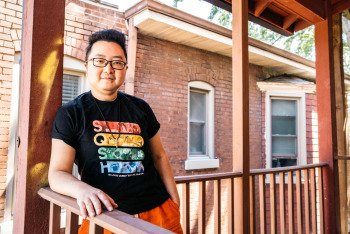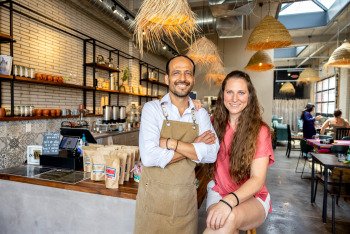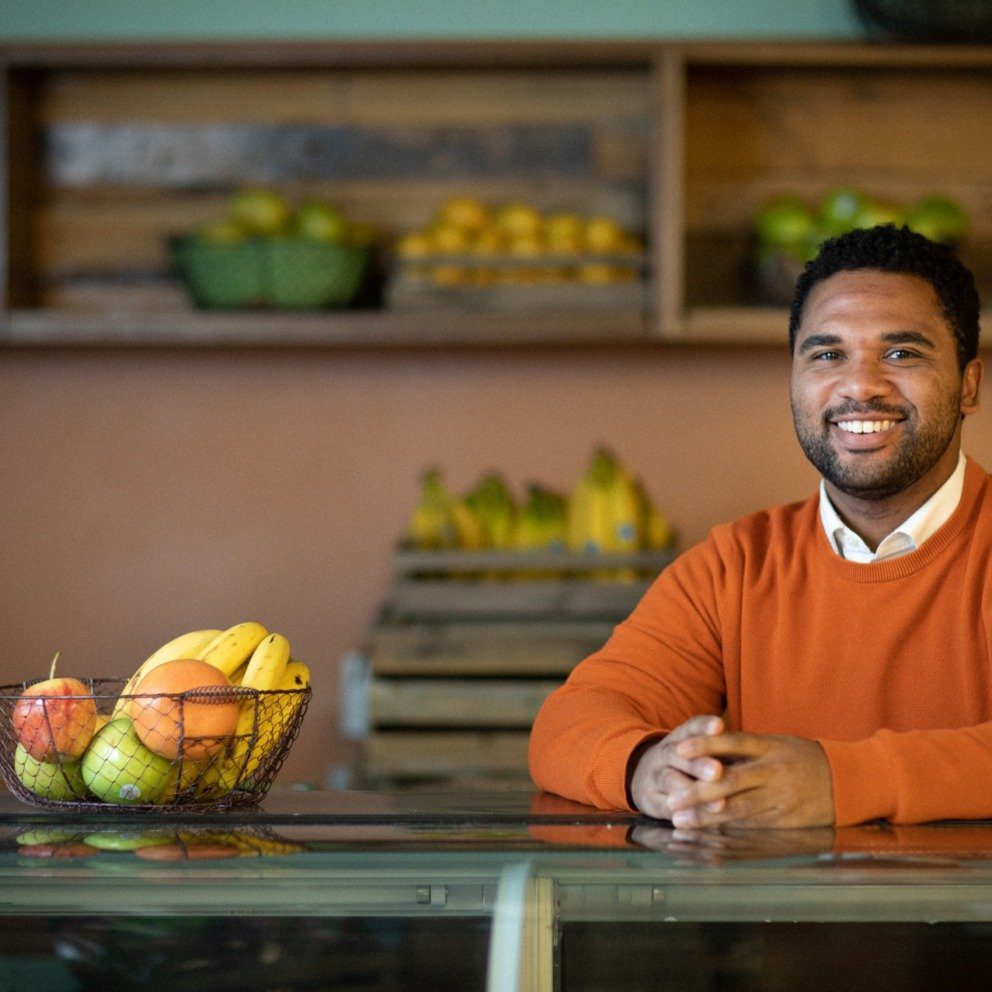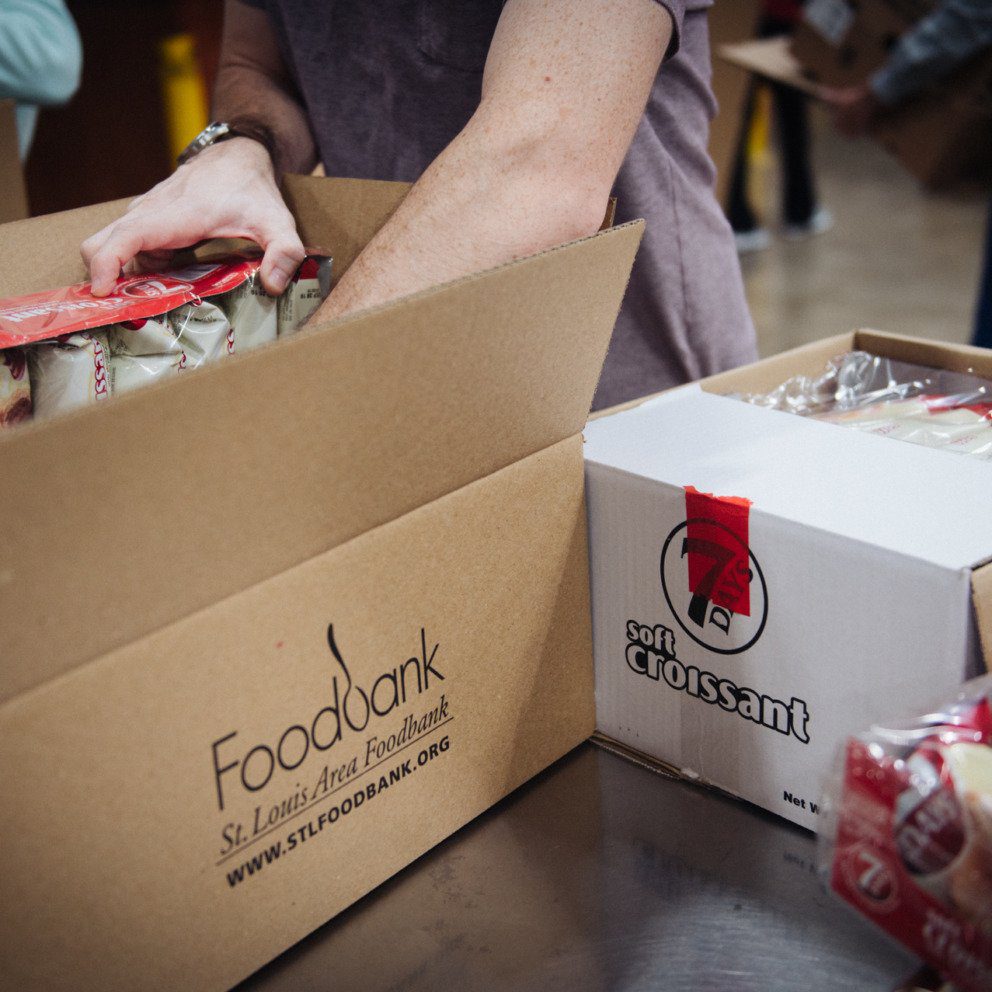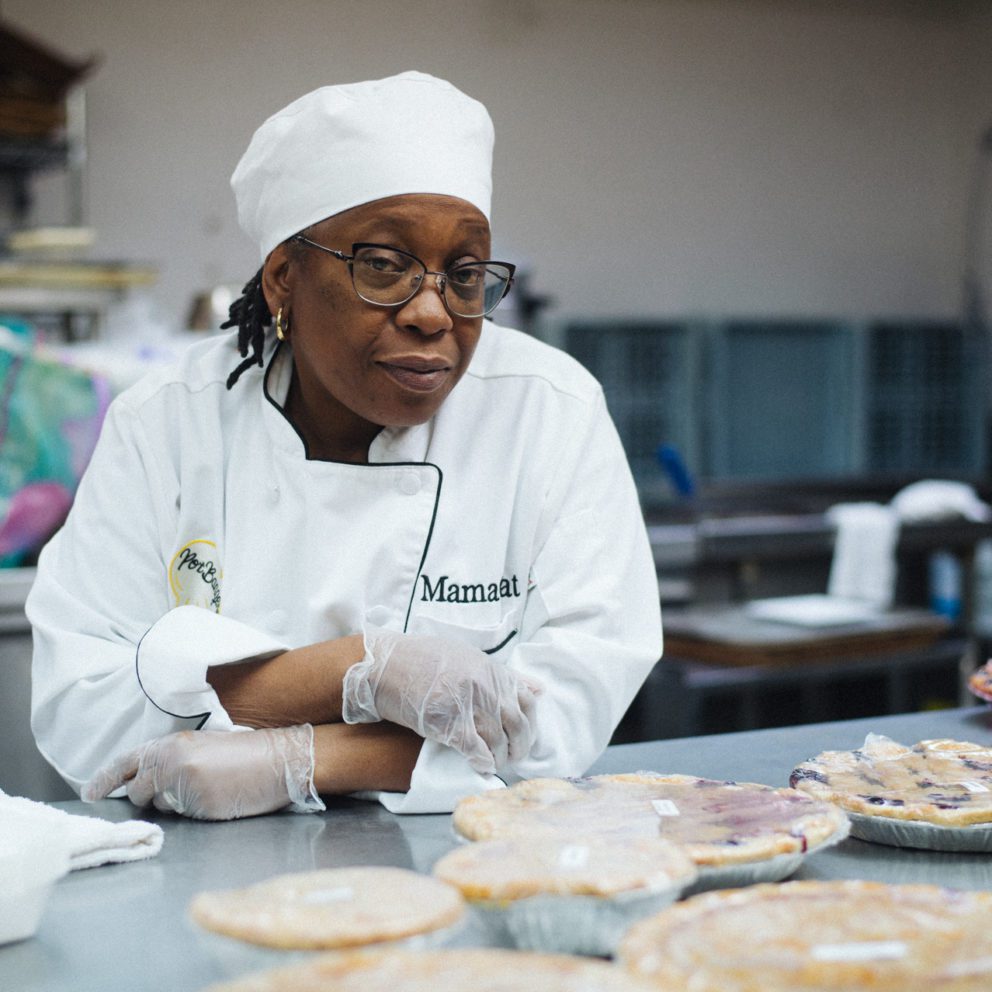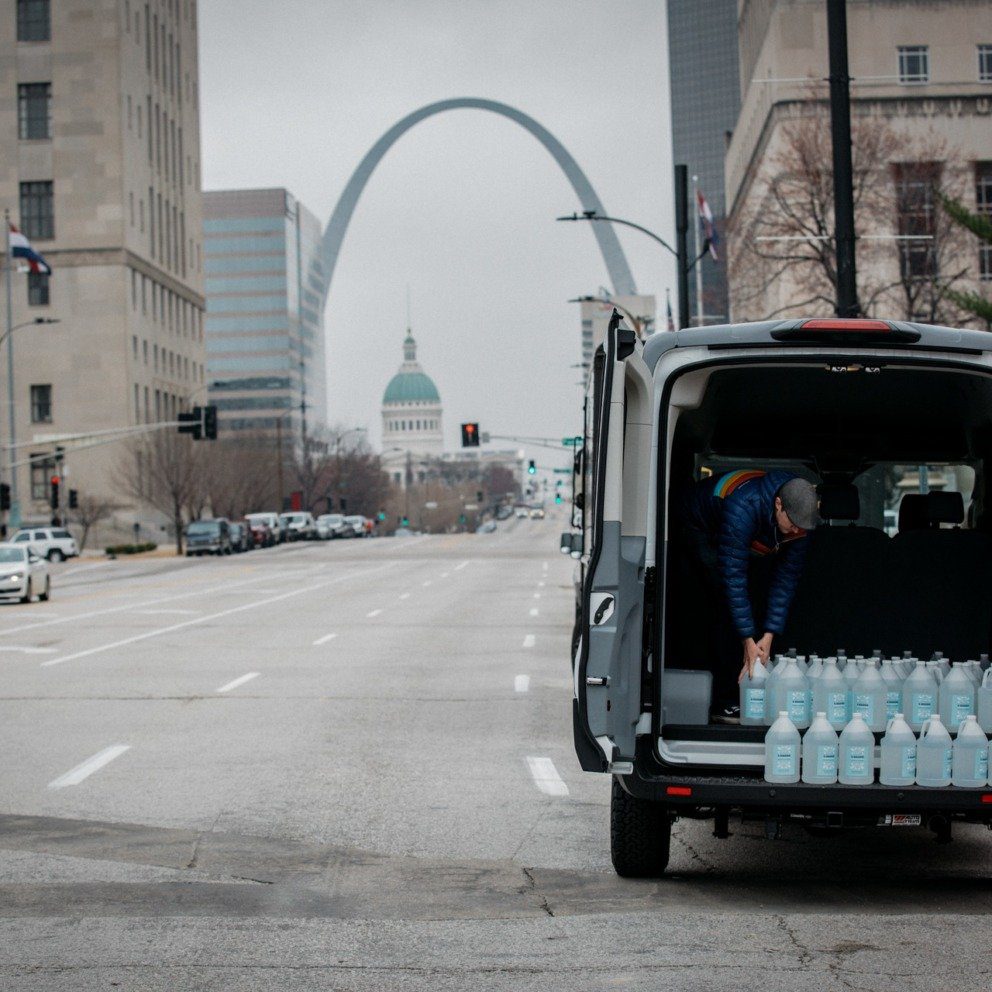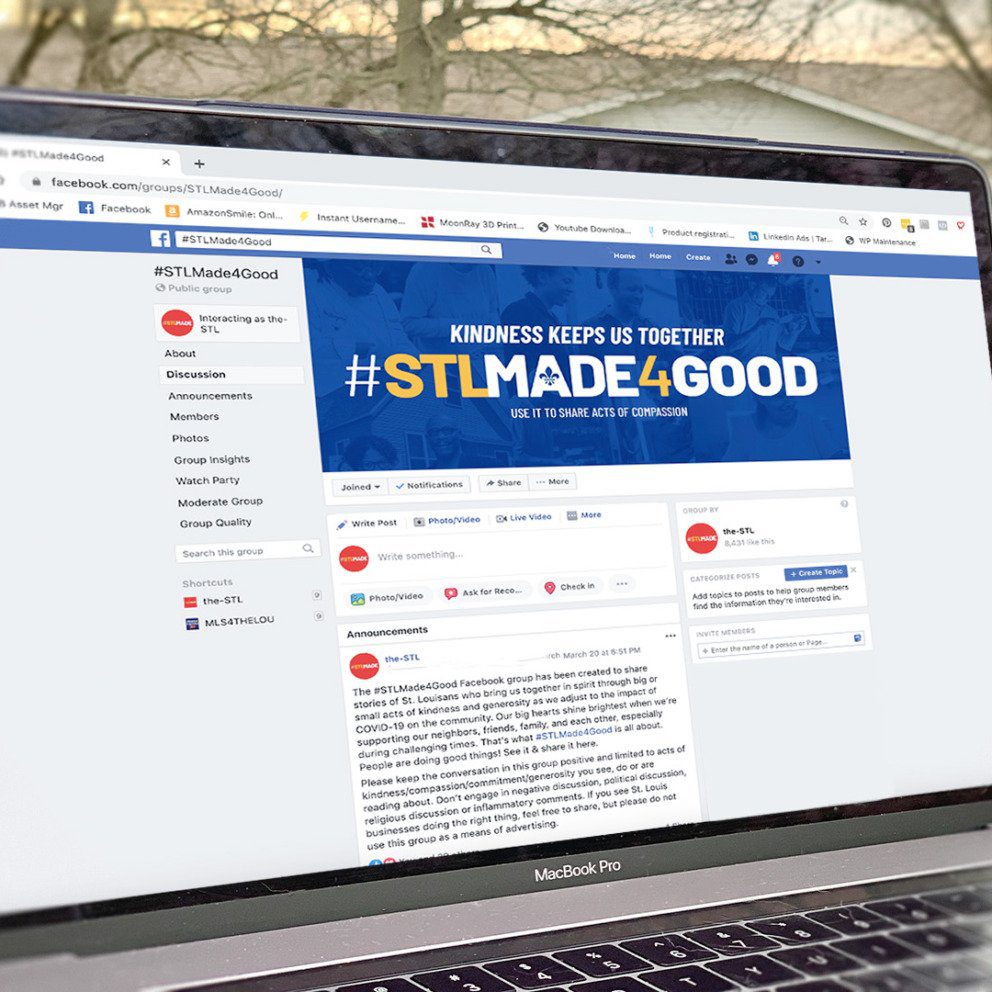Serving Families in Need
When what's "normal" changes overnight, faith leaders come together to support children facing food insecurity.
Reverend Charles Norris and his partners in the Missouri Faith Leadership Council know what it’s like to be moved into action by crisis. Last summer, when St. Louis saw a rash of gun violence that claimed the lives of 18 children, Norris and his fellow faith leaders knew they had to do something to help their community. What they didn’t realize at the time was that they were laying the groundwork for a response that would take on a different meaning in the face of COVID-19.
“When there were all of these deaths last summer, and the kids kept getting younger and younger – six, seven years-old just playing and getting shot – it was horrifying,” Norris explains. “We called upon the Governor to do something, and we put a proposal together for a program designed to provide children with safe spaces and be a central place where families could come for services. When this all happened, we had to repurpose our program, which we could do quickly because we already had the relationships built and the logistics in place.”
Launched in February of this year, the Council’s program, Village Safe Spaces, was primed to provide relief to families struggling during the COVID-19 pandemic well before that was ever a consideration. From its inception, the program was designed as a whole-person, whole-family approach to tackling violence and aimed to address those needs in the form of after school activities, academic support, mental health care and grief counseling. Geared toward middle and high school kids, participants were bussed directly from their schools to one of the Village Safe Space Centers, where they could stay until 10 p.m. and take advantage of all the resources on offer. As Norris explains, the goal was to start the healing process in the community and to let kids know that what they had experienced was not normal.
This March, just a couple of weeks after the program got up and running, the notion of “normal” changed overnight. With schools shut down and a statewide stay-at-home order in place to curb the spread of the virus, the Council was forced to shift its way of serving the community to address an urgent crisis: Food insecurity.
“Food was never a part of this, though it makes sense because our program exists in food deserts,” Norris says. “Within two weeks, we were able to go from not providing food at all to having a commissary that is feeding families. The busses we had that were delivering kids to after-school programs are now delivering food, diapers, personal hygiene products and other things they need.”
As Norris explains, the Council’s mission has not changed; its logistics have. Now, rather than having students come to one of the Village Safe Space locations, the program is coming to homes of the families it had already identified as program participants. One of the biggest changes, however, has been the creation of the St. James Food Commissary, where Council members and their faith communities come together to meet the food needs for the families they serve.
Rabbi Susan Talve of Central Reform Congregation, a Council member, is one of the area faith leaders who has been instrumental in getting the commissary off the ground. Norris credits Talve and her congregation for the initial influx of food donations that the commissary was able to process and send off to families who need food assistance. As Talve notes, the reason for the commissary’s quick success is that the Council had already built relationships in the community.
“When we came up with the idea for Village Safe Spaces, we had the idea that we would use existing grassroots organizations in the neighborhood because they already had the trust of the community,” Talve says. “We had the people in place, so now they can deliver boxes of food as well as the wraparound services we were already offering.”
Hunger may not have been one of the initial services that Village Safe Spaces intended to offer, but now that it has, Norris hopes to continue this part of the mission. As he notes, the need was always there, but the virus has brought it into the daylight – and now that it’s there, they have no choice but to meet it head-on.
“This virus has caused us to slow down in such a way that we can’t help but focus on what’s right in front of us,” Norris says. “As a person of faith, I believe that, not all things are good, but that all things can work together for the good and that’s what is going to prevail. I really believe that we will come out of this stronger than when we went into it. We were fractured and more focused on ourselves, but I believe that as a result of coming through this, we won’t be able to ignore the greater needs of our region. We’ll have rediscovered that we can look at what’s important and come together. I know we can. I see it every day.”
Join the Story
- To donate food to the Village Safe Spaces program, order groceries through Instacart and select the St. James AME Church at 4301 St. Ferdinand Avenue, St. Louis, Missouri 63113 as the delivery location.
- Use #STLMade4Good and join the #STLMade4Good Facebook group to share acts of kindness.


